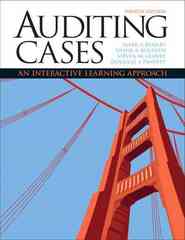Question
Response Paper Opportunity #2: Telling Stories about the Law As you read through L.H. LaRue's lecture about constitutional fictions and telling stories about the law
Response Paper Opportunity #2: Telling Stories about the Law
As you read through L.H. LaRue's lecture about constitutional fictions and "telling stories" about the law and the selections from Everson pay careful attention to how the persuasive and rhetorical force of the legal opinion is buttressed with narratives. you should read the opinion fragments first (and you can reference outside sources like the MTSU page to help you with the opinion if you wish) and then turn to LaRue. As you read both, look for what is meant by "narrative" and how even small differences in framing can significantly shape the view of an issue. After reading through both, answers the following key questions.
- What does LaRue mean by saying that judges tell stories in their opinions and that fundamental principles of constitutional law rest upon fictions? What specifically does he mean when he talks about fictions?
- Focus in a bit on the idea of fiction and its relationship to fact, truth, and falsehood. What is LaRue trying to say (as far as you can tell) about how fictions can be true and how fact and fiction are not equivalent to truth and falsehood? How can fictions be good and true or bad and false?
- Briefly summarize Black's narrative (or fiction), as relayed by LaRue. What is the Hugo Black narrative about the establishment clause and U.S. history?
- What are one or two of LaRue's criticisms of the specific narrative in Everson? In other words, how does he suggest this fiction




















Step by Step Solution
There are 3 Steps involved in it
Step: 1

Get Instant Access with AI-Powered Solutions
See step-by-step solutions with expert insights and AI powered tools for academic success
Step: 2

Step: 3

Ace Your Homework with AI
Get the answers you need in no time with our AI-driven, step-by-step assistance
Get Started























